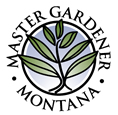Master Gardener Program
History
The Master Gardener Program began with the Washington State Cooperative Extension Service in 1972. It was created to reach the need of home gardeners seeking horticulture information and it is now offered in all 50 states. It pairs unbiased research based information with community involvement.
How it Works
The program is organized by MSU Extension and taught by Extension staff, state specialists and local gardening professionals. Historically, there were three levels of the Master Gardener program, but new changes went into effect in January 2024. A Master Gardener Core Course (previously Level 1) is offered locally and is a minimum of sixteen (16) hours of instruction on basic yard and lawn care, vegetable and flower gardening, soils and plant biology. To become a "certified" Master Gardener, participants must pass an exam with an 80% or better and complete the volunteer committment.
After completion of the core course, certified Master Gardeners who wish to stay active are required to complete at least 4 hours of continuing education each year related to horticulture in additional to annual volunteer hours. Continuing education hours must be provided by Extension professionals, University staff, Extension sponsored seminars/workshops, Montana Department of Agriculture events, horticulture or plant sciences classes, Hours can be in-person or online. For training not sponsored by these entities, approval by the County Extension Agent is required.
Classes are offered locally when there is enough interest.
Volunteer Commitment
If participants would like to become certified Master Gardeners, then they agree to volunteer time in a horticulture related community service activities. Ideas include answering horticulture questions at the Extension Office, volunteering at the farmers market, writing articles, help install or maintain community flower beds or gardens, teach future Master Gardening classes, applied research or youth gardening workshops. Level 1 participants volunteer 20 hours and then 10 hours for every subsequent year.

